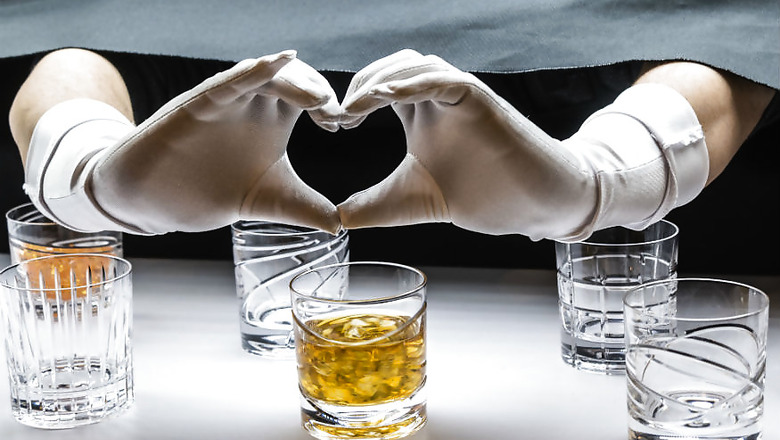
views
 “Ban alcohol. It is against our tradition and culture. It will destroy our fragile customs and beliefs. We need not have to toe the line of the western culture.”
“Ban alcohol. It is against our tradition and culture. It will destroy our fragile customs and beliefs. We need not have to toe the line of the western culture.”
I felt sorry for all the stories I have written about alcohol, which could have hurt my culture badly.
Anyway, that harangue from a politician sent me reeling towards my library. I took a book that paraphrased Rig Veda for poor intellects like me.
After an hour of intense reading, I took my eyes off the soiled pages and gulped. A big gulp it was. Rig Veda celebrates wine and beer more ardently than all the alcohol stories I have ever written for News18.com and elsewhere.
“O Soma, you have been crushed, you flow as a stream to Indra, scattering joy on all sides, you bestow immortal food.”
That was only a curtain raiser.
Soma juice was a milky white juice fermented from a creeper called soma in ancient times. The creepers were pressed, and the juice was mixed with special ingredients, like milk or butter and was allowed to ferment. It was stored and carried around in leather vats by our ancestors in the Vedic period.
The poet of the Rig Veda goes ecstatic every time he gets a chance to extol the virtues and exhilarating powers of the juice. Even gods, he notices, drooled and lined up in the queue whenever a king or a Sannyasin threw a yajna. They greedily accepted the drink offered as it gave them strength and vitality. A whole book of the Veda was devoted to exalting the virtues of the drink, which, he claimed, can tease the gods out from their heavens.
While Sura was the drink of the masses, the upper-class people — both the priests and the warriors — treated themselves with Soma. A dead man should only be sent to the netherworld with “seas of wine, sugar, butter, milk etc,” it says.
Puranas regale us with the story of how gods attained monopoly over their preferred beverage.
You know the story of how gods and demons churned the sea Palazhi to get Amrit. Well, it was ‘sura’ (kicky drink) which bobbed up on the blue first. All those eyes that gathered around mount Manthara twinkled. But as always, the dimwitted demons were slow in the take-off. They were cruelly denied even a small share of the catch.
To rub salt into the wound, the devas, half-drunk, began to tease the vanquished by calling them ‘asura’ (beings who didn’t get to sura in time before those apsaras who broke into giggles. What a sick joke! And the name — asura — stuck.)
We raise the roof over our women taking into drinks. “The evils of western culture,” bellows a moralist.
In the epics, the streets of Kishkindhaya reeked of spirits and the queen of the country, Tara, was found merrily drunk. The queen of Birat used to send her servants to fetch her wine.
Oh, my God! Where were the moral police of the time! How did the Sannyasins of the time take to this social issue of drunk-women in the palaces and streets?
The priests of those times themselves couldn’t resist the temptations of wine. Both Vasishta and Viswamithra, great sages, honoured guests with many kinds of food and wines.
Wine is called ‘the supreme being in liquid form’ in the Tantras, indispensable to rituals. The bars of our ancestors.
Perhaps it is from Shasthras like Artha Shasthra, Dharma Shasthra and Kama Shasthra that we get an idea about the political and domestic codes regarding wine that existed during the times.
We would be pleasantly surprised to learn that a monitoring authority like our present day excise department existed in those times to look over the matters of wine.
Wine shops were restricted to certain portions of the country and inspectors were appointed to take care of their functioning. “These shops shall contain many rooms provided with beds and seats apart. The drinking rooms shall contain scents, garlands of flowers, water and other comfortable things, suitable to varying seasons.”
A fashionable bar of the old times!
(Manu Remakant is a freelance writer who also runs a video blog - A Cup of Kavitha - introducing world poetry to Malayalees. Views expressed here are personal)


















Comments
0 comment